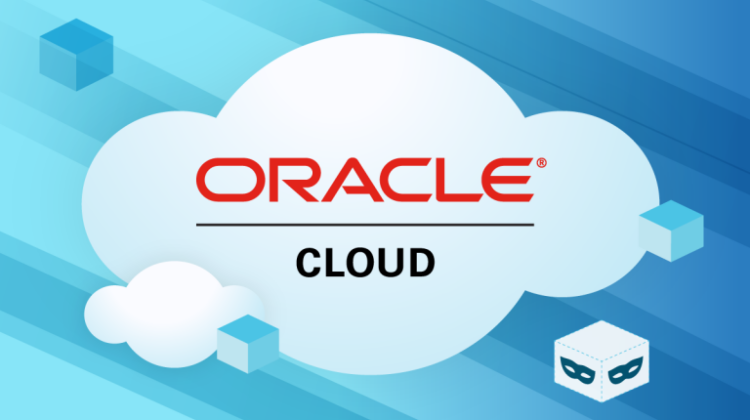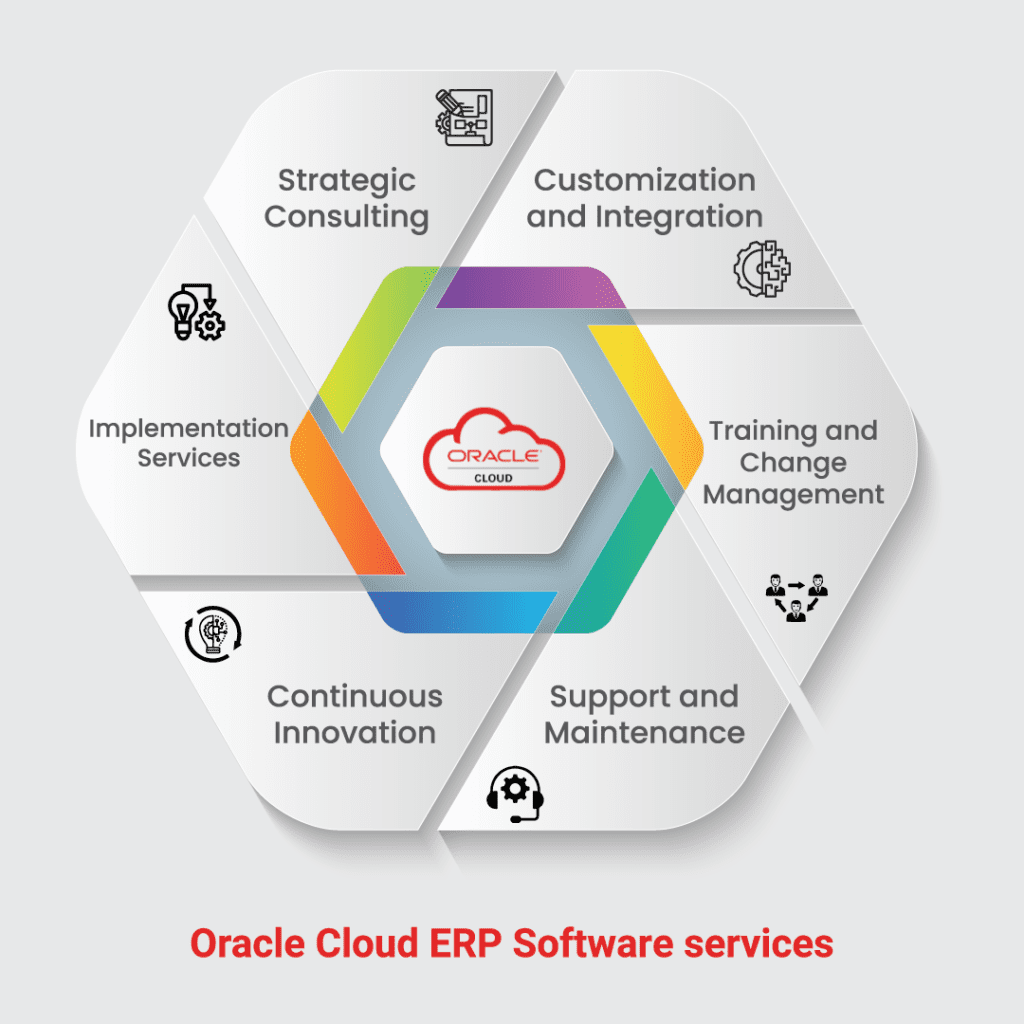erp cloud oracle stands at the forefront of technological advancement, revolutionizing the way businesses manage their resources and operations. As organizations increasingly shift to cloud-based solutions, Oracle’s ERP Cloud emerges as a pivotal tool, providing robust functionalities that enhance efficiency, transparency, and decision-making capabilities.
With its comprehensive suite of features including financial management and supply chain optimization, ERP Cloud Oracle simplifies complex processes while offering real-time analytics that empower businesses to stay competitive in a rapidly evolving market. The significance of this solution is underscored by its ability to address the unique needs of modern enterprises, facilitating a seamless transition from traditional ERP systems to more agile cloud-based frameworks.
Overview of ERP Cloud Oracle

Enterprise Resource Planning (ERP) Cloud Oracle represents a pivotal advancement in the way businesses manage their resources and operations in today’s digital landscape. As a comprehensive suite of cloud-based applications, it integrates various business functions, streamlining processes and enhancing efficiency across departments.Oracle’s ERP Cloud solutions encompass core components that address critical areas of business management. These components are designed to work seamlessly together, providing organizations with a unified platform for financial management, procurement, project management, and more.
The integration of these components facilitates real-time data sharing and collaboration, empowering businesses to make informed decisions based on current information.
For companies aiming to enhance their enterprise resource planning, ax erp provides robust features that cater to diverse business needs. This solution not only optimizes processes but also fosters better decision-making through detailed analytics. Discover how Ax ERP can transform your operational efficiency today.
Core Components of Oracle’s ERP Cloud Solutions
The core components of Oracle’s ERP Cloud solutions include:
- Financial Management: This module offers features for managing financial transactions, budgeting, and forecasting, enabling organizations to maintain accurate and timely financial records.
- Procurement: The procurement module streamlines purchasing processes, automating workflows and enhancing supplier management to reduce costs and improve service quality.
- Project Management: This component helps organizations plan, execute, and analyze projects effectively, providing tools for resource allocation, scheduling, and performance tracking.
- Risk Management: Oracle’s ERP integrates risk management tools that help identify, assess, and mitigate risks associated with financial and operational activities.
- Supply Chain Management: This module optimizes the supply chain processes, from procurement to inventory management, ensuring a smooth flow of goods and services.
The integration of these components allows for comprehensive visibility and control over business operations, significantly enhancing overall performance.
Benefits of Using ERP Cloud Systems Over Traditional Models
Transitioning to an ERP Cloud system offers numerous advantages compared to traditional ERP models. These benefits fundamentally transform business operations and strategy, driving efficiency and growth. Key benefits include:
- Cost Efficiency: Cloud-based solutions typically reduce the need for extensive on-premises infrastructure, leading to lower maintenance costs and reduced capital expenditures.
- Scalability: ERP Cloud systems can easily scale to accommodate the growing needs of a business, allowing organizations to adapt to market changes without significant overhead.
- Accessibility: Being cloud-based, these systems provide access from any location with internet connectivity, facilitating remote work and collaboration across teams.
- Automatic Updates: Cloud ERP solutions offer automatic updates, ensuring businesses always operate with the latest features and security enhancements without additional costs or downtime.
- Improved Analytics: Advanced analytics tools embedded in ERP Cloud systems allow organizations to leverage data for better decision-making, driving strategic initiatives effectively.
The shift to ERP Cloud not only enhances operational efficiency but also positions businesses to respond agilely to the dynamic market demands.
Dolibarr ERP CRM offers a comprehensive solution for businesses looking to streamline their operations. With its user-friendly interface, you can easily manage customer relationships while integrating various functionalities. If you’re interested in exploring this powerful tool, you can learn more about it through this link: dolibarr erp crm.
Implementation Strategies for Oracle ERP Cloud: Erp Cloud Oracle
The implementation of Oracle ERP Cloud involves a systematic approach to ensure that organizations can successfully transition to a cloud-based environment while maximizing the platform’s capabilities. This process requires careful planning, execution, and management to address both technical and organizational challenges. The implementation process consists of several key steps, each designed to facilitate a smooth transition to Oracle ERP Cloud.
Understanding these steps allows organizations to allocate resources effectively and minimize disruptions during the transition.
Steps Involved in Implementation
The implementation of Oracle ERP Cloud comprises distinct phases that guide organizations through the transition. These phases typically include:
- Preparation and Planning: Organizations should conduct a thorough needs assessment followed by defining clear objectives and scope for the ERP implementation. This phase includes establishing a project team and stakeholder engagement.
- System Design: In this phase, the organization’s specific requirements are translated into system specifications. This includes defining business processes, workflows, and integrations needed for optimal functionality.
- Configuration and Customization: Based on the design specifications, configurations are made within the Oracle ERP Cloud system. Customizations may be necessary to adapt the software to unique business needs.
- Data Migration: Accurate data migration is critical. This process involves extracting, transforming, and loading data from legacy systems into the new Oracle ERP Cloud environment.
- Testing: Comprehensive testing is essential to ensure that the system functions as intended. This includes unit testing, system testing, and user acceptance testing to validate all configurations and customizations.
- Training and Change Management: Effective training programs must be implemented to equip users with the skills necessary to navigate the new system. Change management practices should also prepare employees for transitions in processes and workflows.
- Go-Live and Support: Once the system is fully tested and users are trained, the system goes live. Post-implementation support is crucial to address any issues and ensure a smooth transition.
Best Practices for Successful Transition
To ensure a successful transition to Oracle ERP Cloud, organizations should adhere to several best practices that promote efficiency and minimize risk.
- Engage Stakeholders Early: Involve all relevant stakeholders from the outset to ensure buy-in and identify potential resistance.
- Define Clear Objectives: Establish measurable goals and success criteria for the ERP implementation to guide progress and evaluation.
- Prioritize User Training: Focus on comprehensive training programs that cater to different roles within the organization, ensuring users are confident in utilizing the new system.
- Maintain Ongoing Communication: Keep lines of communication open throughout the project to address concerns and provide updates on progress.
- Utilize Change Management Techniques: Implement change management strategies to facilitate the transition and reduce uncertainty among employees.
Common Challenges and Solutions, Erp cloud oracle
Organizations often encounter several challenges during the implementation of Oracle ERP Cloud. Identifying these challenges early and developing strategies to address them can significantly enhance the likelihood of success.
- Resistance to Change: Employees may resist adopting new systems and processes. Addressing this involves transparent communication about the benefits of the new system and involving employees in the transition process.
- Data Migration Issues: Data inconsistencies can arise during migration. To mitigate this risk, organizations should conduct thorough data cleansing and validation prior to migration.
- Inadequate Training: Insufficient training can lead to user errors and underutilization of the system. Providing tailored training sessions that accommodate varying levels of expertise can enhance user proficiency.
- Integration Difficulties: Integrating Oracle ERP Cloud with existing systems can pose technical challenges. Establishing clear integration plans and working with experienced IT consultants can help streamline this process.
Features and Functionalities of Oracle ERP Cloud

Oracle ERP Cloud is a comprehensive suite designed to streamline and enhance business operations. With its robust features and functionalities, organizations can optimize their processes across various domains, including finance, procurement, project management, and supply chain management. This flexibility not only improves efficiency but also provides valuable insights essential for informed decision-making.
Key Features of Oracle ERP Cloud
The key features of Oracle ERP Cloud encompass a wide array of functionalities that cater to diverse business needs. Among these, financial management and supply chain management stand out as pivotal elements that empower organizations to achieve their strategic goals.
- Financial Management: Oracle ERP Cloud offers comprehensive financial management tools that facilitate efficient accounting, budgeting, and forecasting. With real-time visibility into financial data, businesses can enhance compliance and drive profitability.
- Supply Chain Management: The platform provides advanced capabilities for managing supply chain processes, including procurement, inventory management, and logistics. This integration improves collaboration across departments and enhances the overall efficiency of supply chain operations.
Real-Time Analytics and Reporting
Real-time analytics and reporting are critical features of Oracle ERP Cloud that allow businesses to harness the power of data. The ability to access up-to-date insights enables organizations to make informed decisions swiftly, thereby enhancing operational agility.
“Real-time analytics transforms data into actionable insights, enabling proactive decision-making.”
The reporting tools within Oracle ERP Cloud facilitate the generation of customized reports that provide clear visibility into key performance indicators (KPIs). By leveraging these insights, organizations can identify trends, monitor performance, and adjust strategies to remain competitive.
Leveraging ERP Functionalities for Competitive Advantage
Businesses can utilize Oracle ERP Cloud functionalities to gain a competitive edge in their respective markets. By implementing the platform’s capabilities effectively, organizations can streamline their operations and improve customer satisfaction.
- Enhanced Decision-Making: With access to real-time data and powerful analytics, companies can make quicker, more informed decisions, positioning themselves ahead of competitors.
- Increased Operational Efficiency: Automation of routine tasks reduces administrative burdens, allowing employees to focus on strategic initiatives that drive innovation.
- Improved Customer Experience: By integrating customer-facing processes with back-end operations, companies can respond to customer needs more effectively, enhancing loyalty and retention.
Through the strategic application of Oracle ERP Cloud features, businesses can optimize their workflows, reduce costs, and ultimately drive growth in an increasingly competitive landscape.
Future Trends in ERP Cloud Technology

As businesses continue to evolve in the digital age, ERP Cloud technology is anticipated to undergo significant transformations. These shifts are driven by advancements in technology and changing business needs, leading to improvements in efficiency, agility, and decision-making processes within organizations. This section explores emerging trends in ERP Cloud technology, focusing on the implications for businesses and how they can strategically prepare for the future.
Emerging Trends in ERP Cloud Technology
The landscape of ERP Cloud technology is witnessing several key trends that are set to reshape how businesses operate. Organizations are increasingly adopting these innovations to enhance their operational capabilities and remain competitive in a rapidly changing market.
- Multi-Cloud Strategies: Companies are embracing multi-cloud environments to avoid vendor lock-in and enhance flexibility. This trend allows businesses to leverage various cloud services to optimize their ERP systems according to specific needs.
- Increased Focus on User Experience: Modern ERP solutions are prioritizing user-friendly interfaces, ensuring that employees can easily navigate and utilize the system. This emphasis on usability enhances productivity and reduces training time.
- Real-Time Data Analytics: The integration of advanced analytics within ERP systems enables organizations to access real-time insights. Companies can make informed decisions quickly, improving responsiveness to market changes and operational demands.
Advancements in Artificial Intelligence and Machine Learning
Artificial Intelligence (AI) and Machine Learning (ML) are revolutionizing ERP systems, enhancing their functionality and providing businesses with powerful tools for data management and decision-making. These technologies are becoming integral to the future of ERP Cloud solutions.
- Predictive Analytics: AI and ML facilitate predictive analytics, allowing organizations to forecast trends and behaviors based on historical data. By employing these capabilities, companies can proactively address potential issues and seize growth opportunities.
- Automated Processes: Automation powered by AI reduces manual intervention in repetitive tasks, streamlining workflows and minimizing errors. This efficiency not only saves time but also allows employees to focus on higher-value activities.
- Enhanced Customer Insights: AI capabilities enable businesses to analyze customer interactions and preferences more effectively. This information drives improved customer service and personalized marketing, fostering stronger customer relationships.
Preparing for the Future of ERP Cloud Solutions
To effectively navigate the future landscape of ERP Cloud solutions, businesses must adopt strategic measures that align with emerging trends and technologies. Preparation involves several critical actions that can enhance organizational agility and competitiveness.
- Invest in Training: Organizations should prioritize training programs to equip staff with the necessary skills to leverage new technologies and functionalities within ERP systems. This investment is crucial for maximizing the benefits of advanced ERP Cloud solutions.
- Stay Informed on Industry Trends: Continuous monitoring of industry developments allows businesses to adapt to changes and seize new opportunities. Engaging with industry experts and participating in relevant forums can provide valuable insights.
- Implement Agile Methodologies: Embracing agile methodologies fosters adaptability in ERP projects. Flexibility in project management allows teams to respond quickly to changes and challenges, ensuring successful implementation and integration of new technologies.
“The integration of AI and ML within ERP Cloud systems is no longer a future prospect; it is the present reality that businesses must embrace to thrive.”